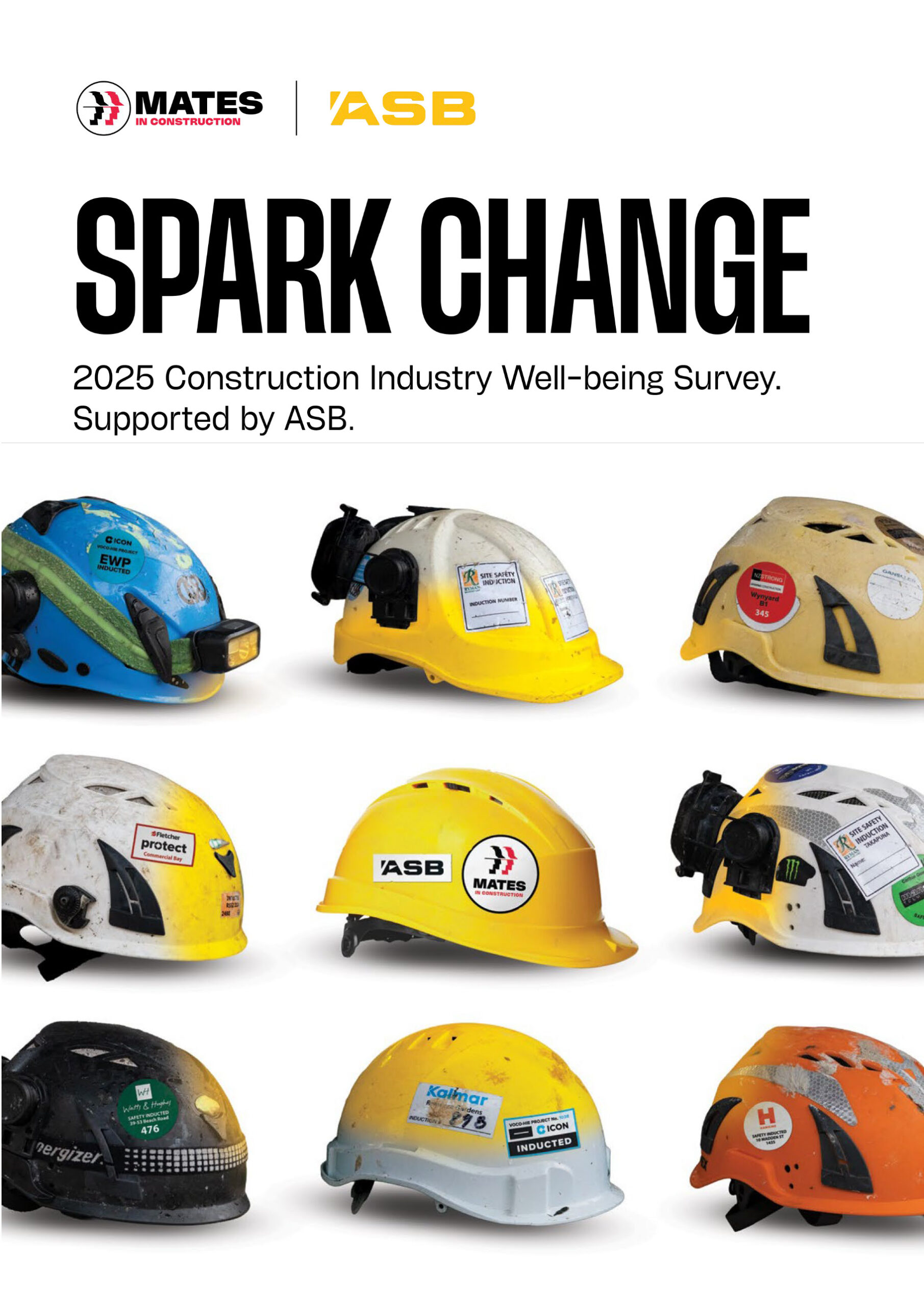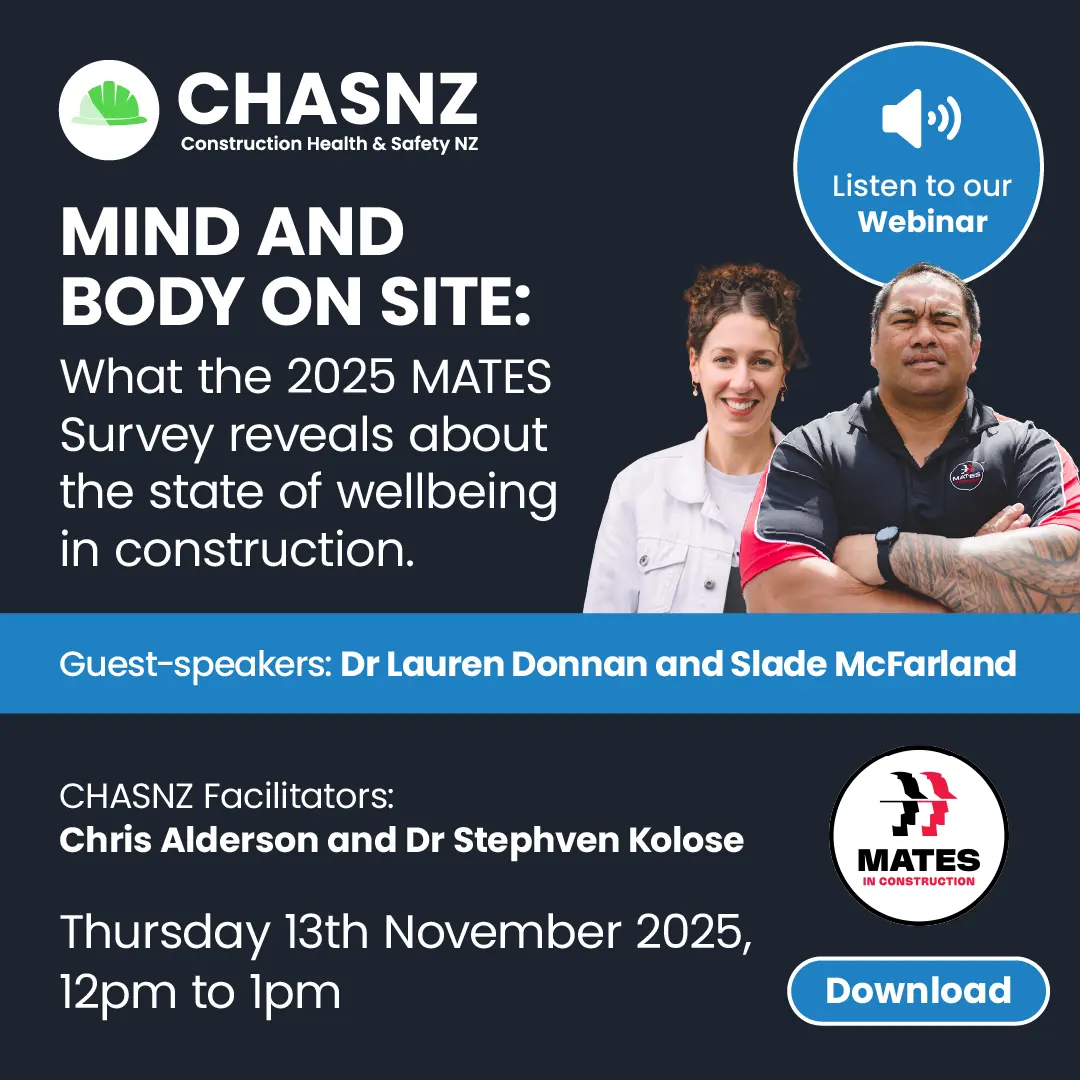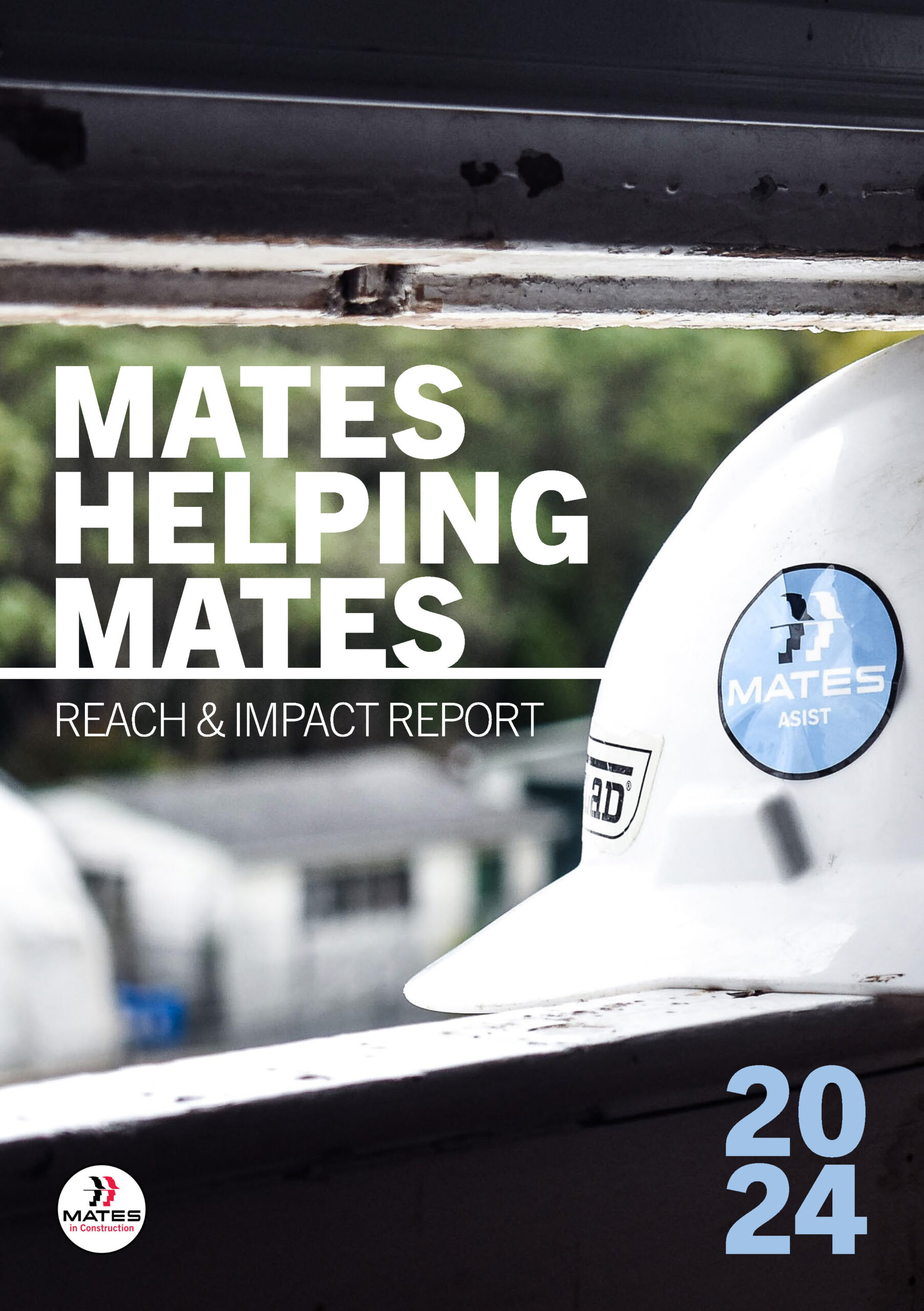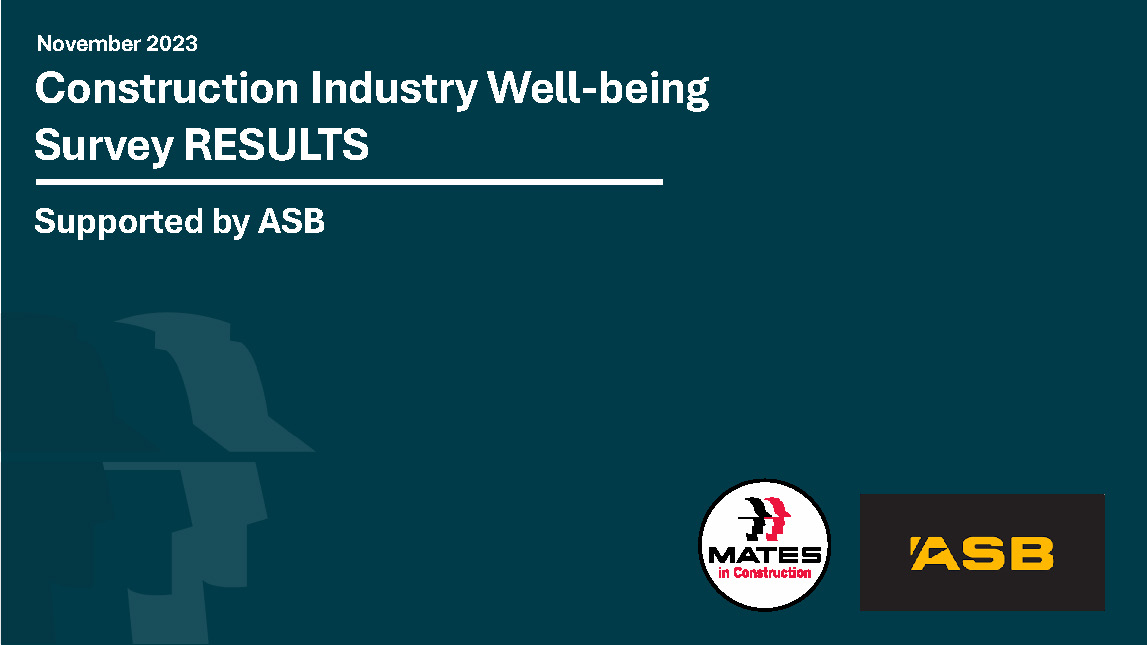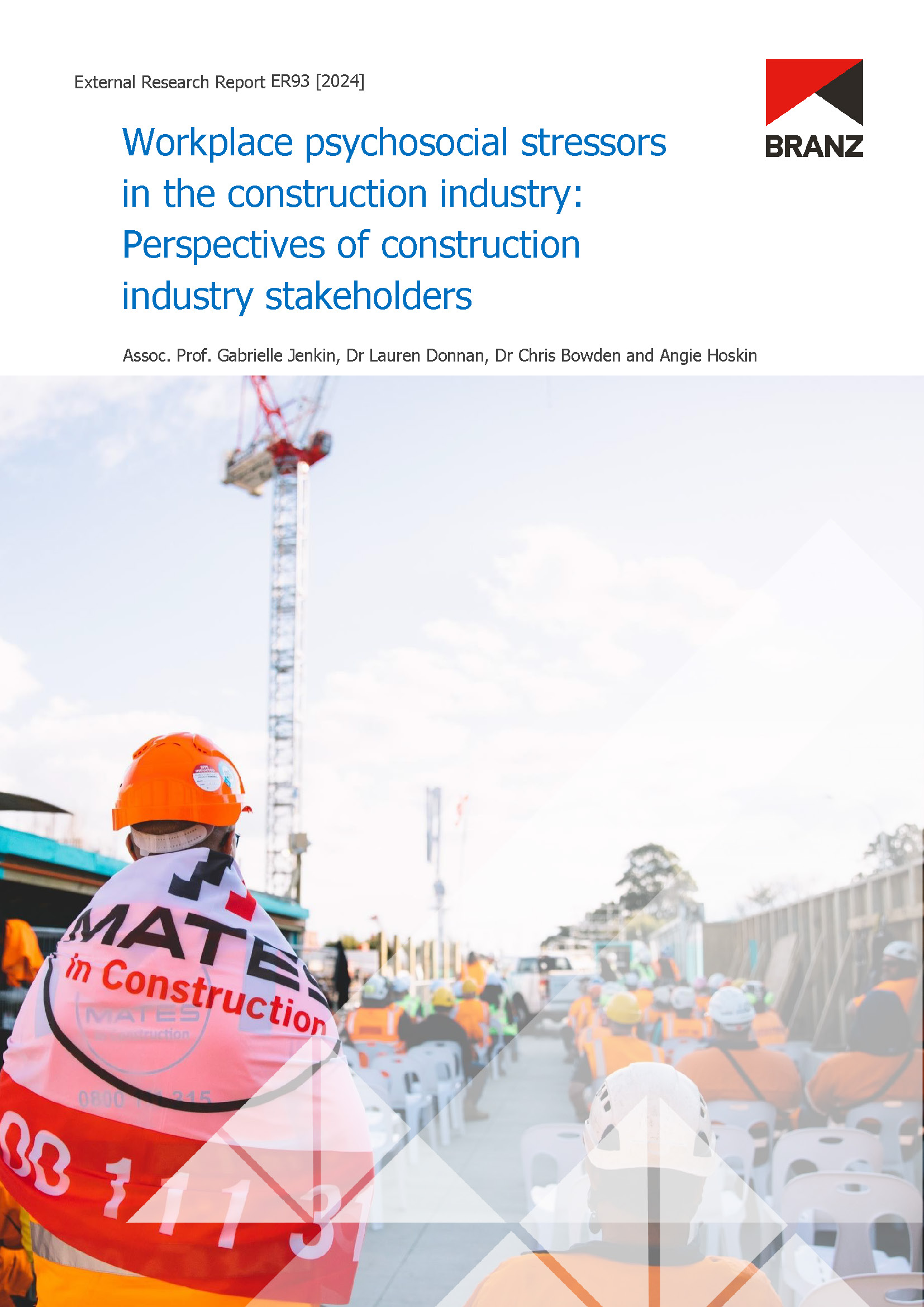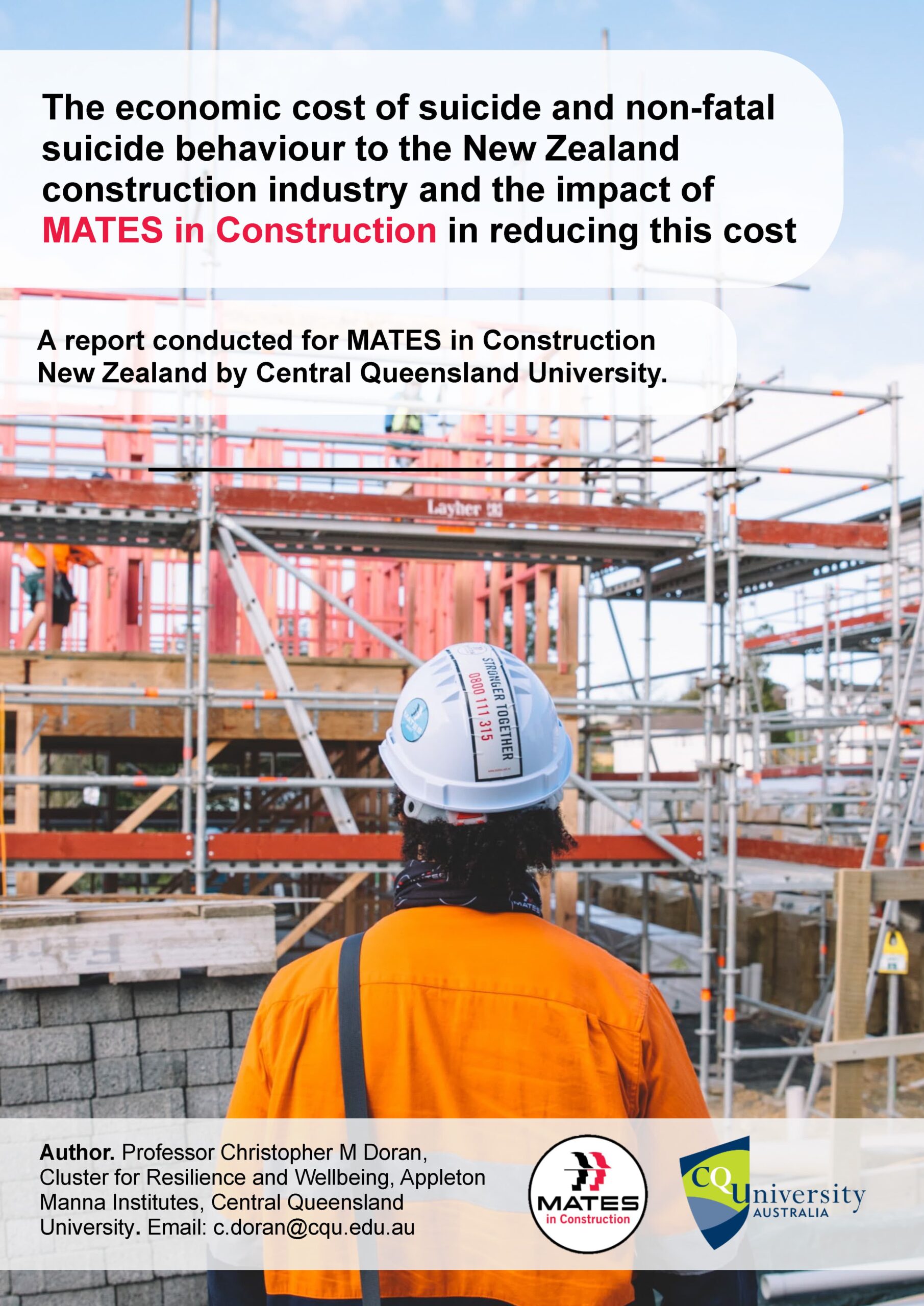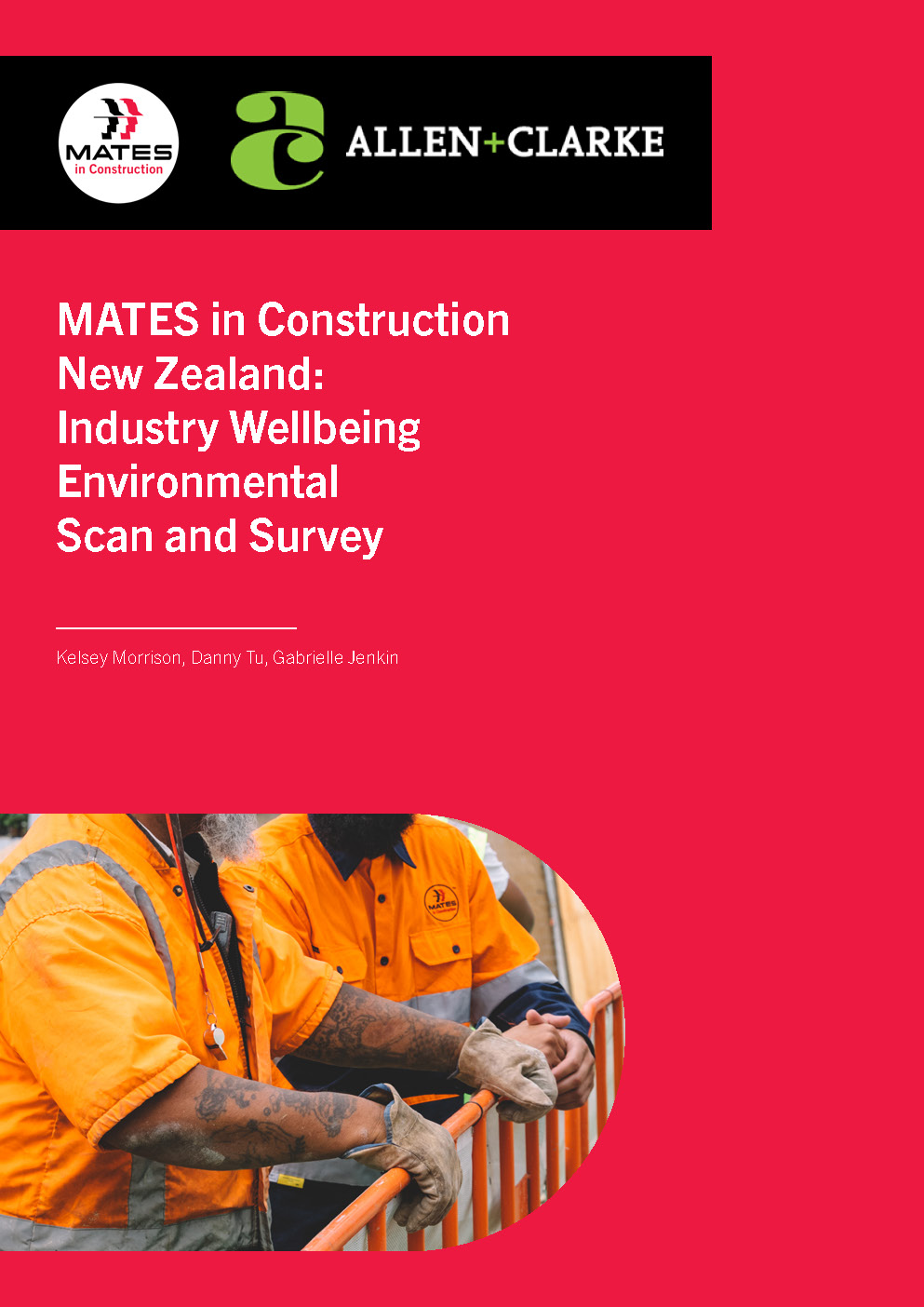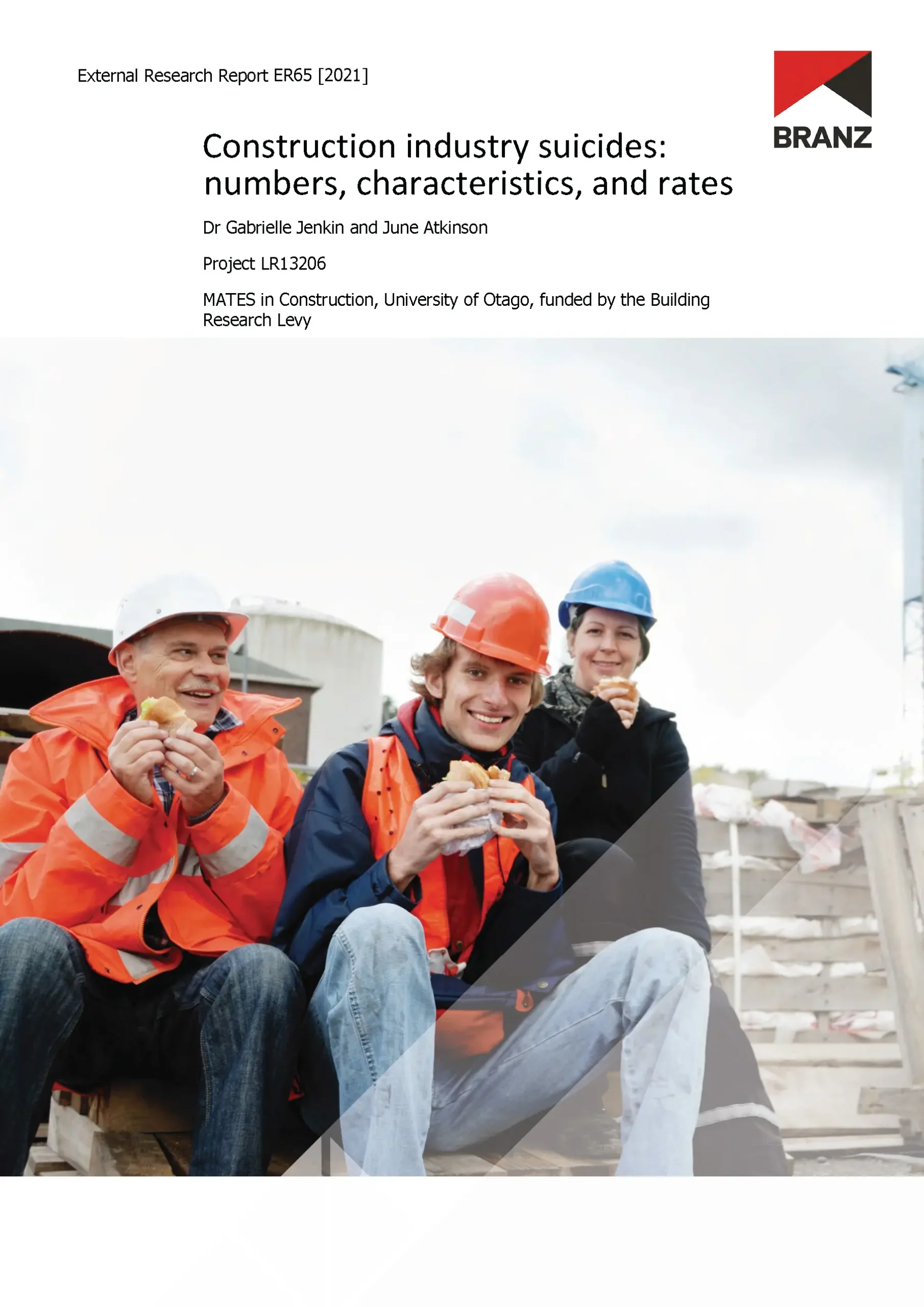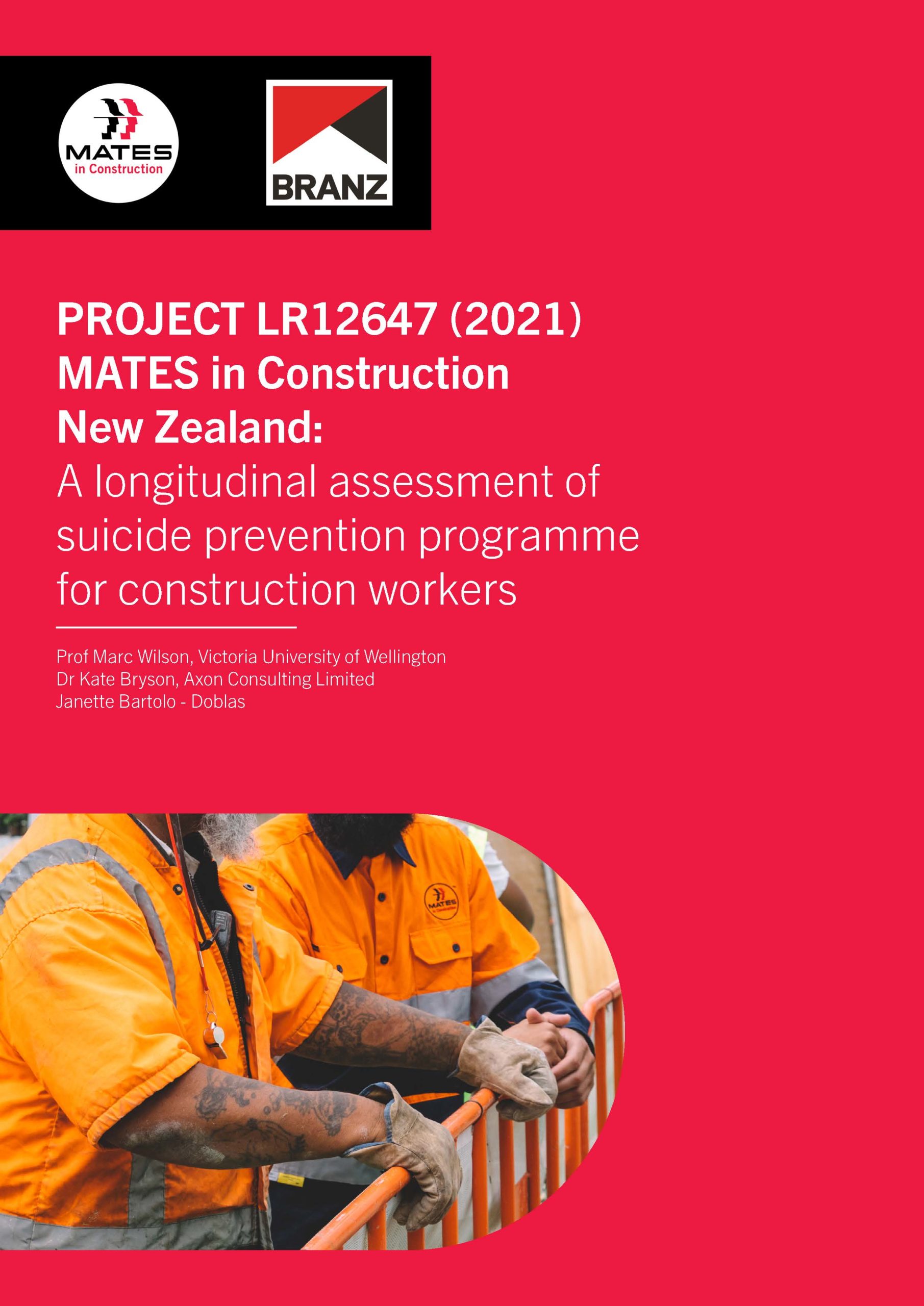MATES RESOURCE HUB
HAVE FEEDBACK OR A STORY TO SHARE?
New Zealand Research
MATES in Construction NZ is an evidence-based workplace suicide prevention model, developed to reduce high suicide rates in the NZ Construction Industry.
We evaluate, test and research the work done ensuring shared learning efficiency. All programmes delivered by MATES in Construction are evaluated with feedback and analysis being incorporated into content as appropriate.
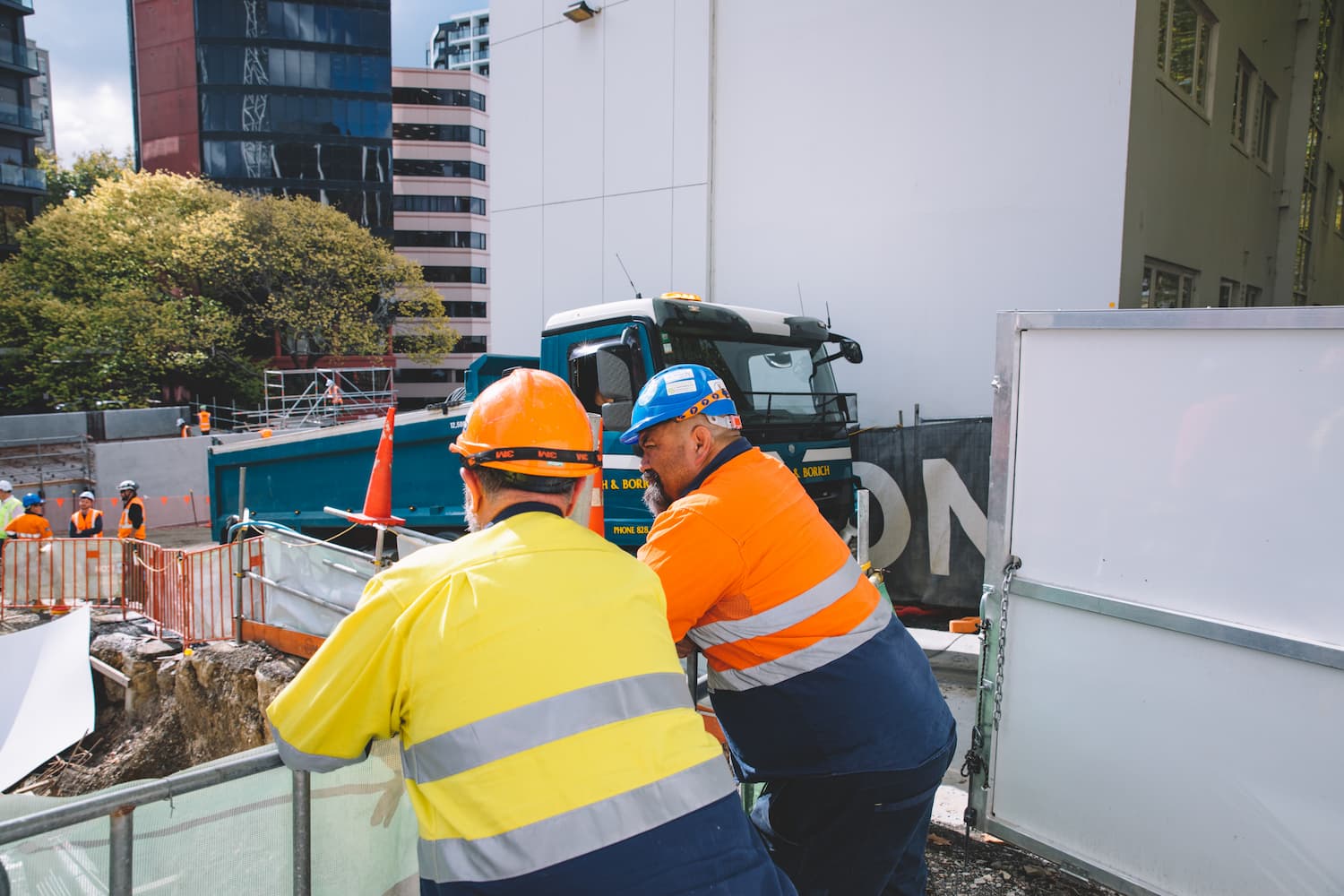
MATES 2025 INDUSTRY WELL-BEING SURVEY, SUPPORTED BY ASB
The 2025 MATES Well-being Survey is our strongest yet – with over 3,300 workers taking part. The survey provides a broadly representative sample that reflects the size, diversity, and complexity of the industry. Its strength lies not just in the number of responses but in the reach: voices from apprentices to senior leaders, from large firms to small businesses, from Māori, Pasifika, Asian, and migrant workers, from men and women, and from both urban and rural regions. Together, this diversity gives one of the clearest pictures yet of the realities and pressures facing construction workers across Aotearoa.
MIND AND BODY ON SITE WEBINAR – chasnz (NOVEMBER, 2025)
This webinar brings MATES 2025 Industry Wellbeing Survey findings to life — exploring how stress, fatigue, and musculoskeletal pain are linked to mental strain, and how stronger workplace cultures and smarter prevention strategies can help workers stay well and keep moving.
MATES HELPING MATES – REACH AND IMPACT REPORT 2024
We are proud to share the MATES Helping MATES 2024 Reach and Impact Report. This report reflects the mahi carried out by our staff and Industry throughout the year and reinforces MATES’ commitment to transparency, accountability, and continuous improvement in supporting workers’ mental health and well-being.
MATES in Construction Well-being Survey, supported by ASB
2024 – MATES in Construction
Overview: The 2023 MATES Construction Industry Well-being Survey, supported by ASB, sheds light on the mental health and well-being of over 2,100 workers in New Zealand’s construction sector. The online and onsite multi-language survey revealed that while overall self-reported well-being has improved compared to previous years, certain groups – such as those with mental illness or disabilities, non-binary individuals, younger workers, those with low support or not in relationships, and workers living in the Te Manawa Taki region – continue to face higher levels of stress and psychological distress. Key psychosocial stressors of concern included high job demand, poor relationships, and exhaustion.
Workplace psychosocial stressors in the construction industry: Perspectives of construction industry stakeholders – supported by BRANZ, funded by the Building Research Levy
2024 – MATES in Construction and BRANZ.
Overview: Understanding psychosocial stressors in the construction industry is crucial for improving mental health outcomes. This research used qualitative methods, including 19 focus groups and 2 interviews with 115 industry workers, to explore these stressors and their impacts. It identified five key stressors: financial instability, poor communication, entrenched old-school masculinity, low pay and job insecurity, and insufficient mental health support. Proposed solutions include government intervention, better regulation, improved communication, supportive workplace cultures, and specific interventions like limits on overtime and mental health programs. Despite ongoing challenges, there is optimism as cultural change is evident, with increasing discussions on mental health and wellbeing in the sector.
The economic cost of suicide and non-fatal suicide behaviour to the NZ construction industry
2024 – Doran – conducted for MATES in Construction New Zealand by Central Queensland University.
Overview: Suicidal behaviour is a critical public health issue with notably higher rates in New Zealand’s construction sector. In 2023, 80 construction workers died by suicide and 1,628 experienced self-harm incidents, leading to a significant economic impact estimated at $1.14 billion NZD. The MATES in Construction NZ (MATES) program has been shown to effectively improve worker attitudes and behaviours, potentially saving at least one life annually and generating a substantial return on investment of $4.42 to every $1 invested in MATES. This figure is conservative, as the considerable demand for MATES suggests it may save even more lives. Evidence based, well-resourced programs like MATES represent a valuable investment in reducing the economic burden of suicidal behaviour and enhancing workplace safety for NZ’s construction industry.
Industry wellbeing environmental scan and survey
2021 – MATES in Construction, Allen + Clarke
Overview: In late 2021, it became noticeable that workers were experiencing a significant increase in anxiety, fear, anger and frustration. There is a term that has been labelled “coronaphobia” which is fears relating to contracting the virus, we felt that this could be causing increased anxiety. We were also hearing about segregation and stigmatisation between our workers, (the vaxed versus the unvaxed) The stigma of COVID-19, in the present context, could be comprehended as a social process that sets to exclude those who are perceived to be a potential source of disease and may pose threat to the effective social living in the society. MATES wanted to get a better understanding of how COVID-19 was impacting our workforce.
Construction industry suicides: numbers, characteristics, and rates
2021 – MATES in Construction, BRANZ, Otago University
Overview: The specific aims of this research were to re-examine the definition of the construction industry (and re-define if necessary), clarify the numbers of suicide in the New Zealand construction industry and calculate the industry specific suicide rate. Accurate suicide data for the industry is critical for monitoring suicide trends and providing a baseline for assessing the
effectiveness of suicide prevention initiatives.
A longitudinal assessment of suicide prevention programme for construction workers
2021 – MATES in Construction, BRANZ, Victoria University
Overview:This study is the first phase of an ongoing MATES evaluation programme. It aims to; evaluate the efficacy and impact of the GAT on the attitudes towards suicide, help-offering, and help-seeking among New Zealand
construction workers, and produce evidence and baseline data to measure the impact and inform further development and refinement of the MATES programme in New Zealand.
BRANZ Report
The 2018 BRANZ Mental Health in the Construction Industry scoping study was commissioned to better understand the suicide risk for construction workers.
Nga Rahui Hau Kura Suicide Mortality Review Committee
Every week on average, 10 New Zealanders die by suicide. Many more are treated in hospital after a suicide attempt, having seriously harmed themselves. Sadly, we have some of the highest youth suicide rates in the OECD and suicide rate for Māori are over 50 percent higher than for non-Māori.
Koi Tū: The Centre for Informed Futures
The future is now: Implications of Covid-19 for New Zealand >
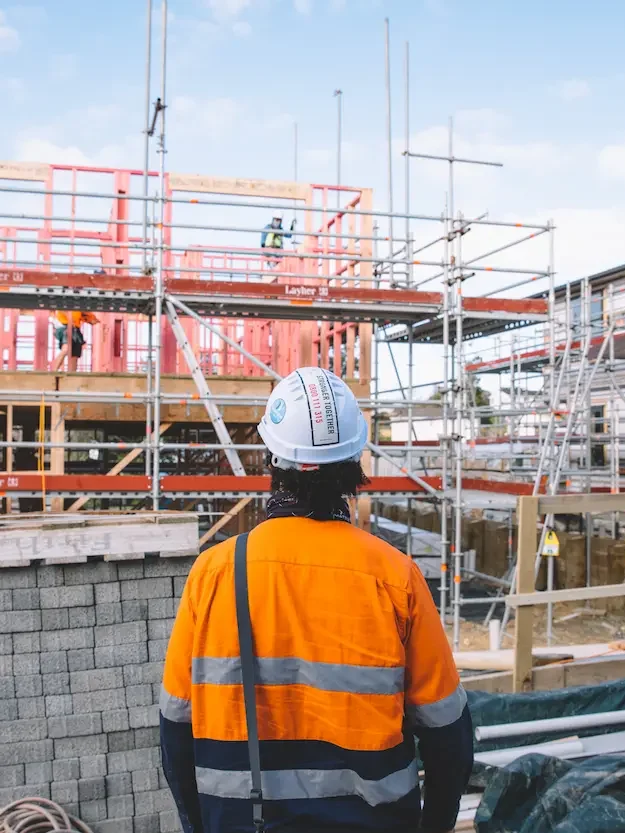
POSTGRADUATE RESEARCH
SUICIDE PREVENTION IN CONSTRUCTION
MATES loves to hear about and support postgraduate students researching mental health and suicide prevention in the construction industry.
If you’re undertaking study in this space, please get in touch with MATES Research Innovation and Evaluation Manager, Dr. Lauren Donnan – ldonnan@mates.net.nz – and we can add your research to the list below.
There are some exciting opportunities to participate in research – if you are keen to share your voice, click on the links below to find out more:
